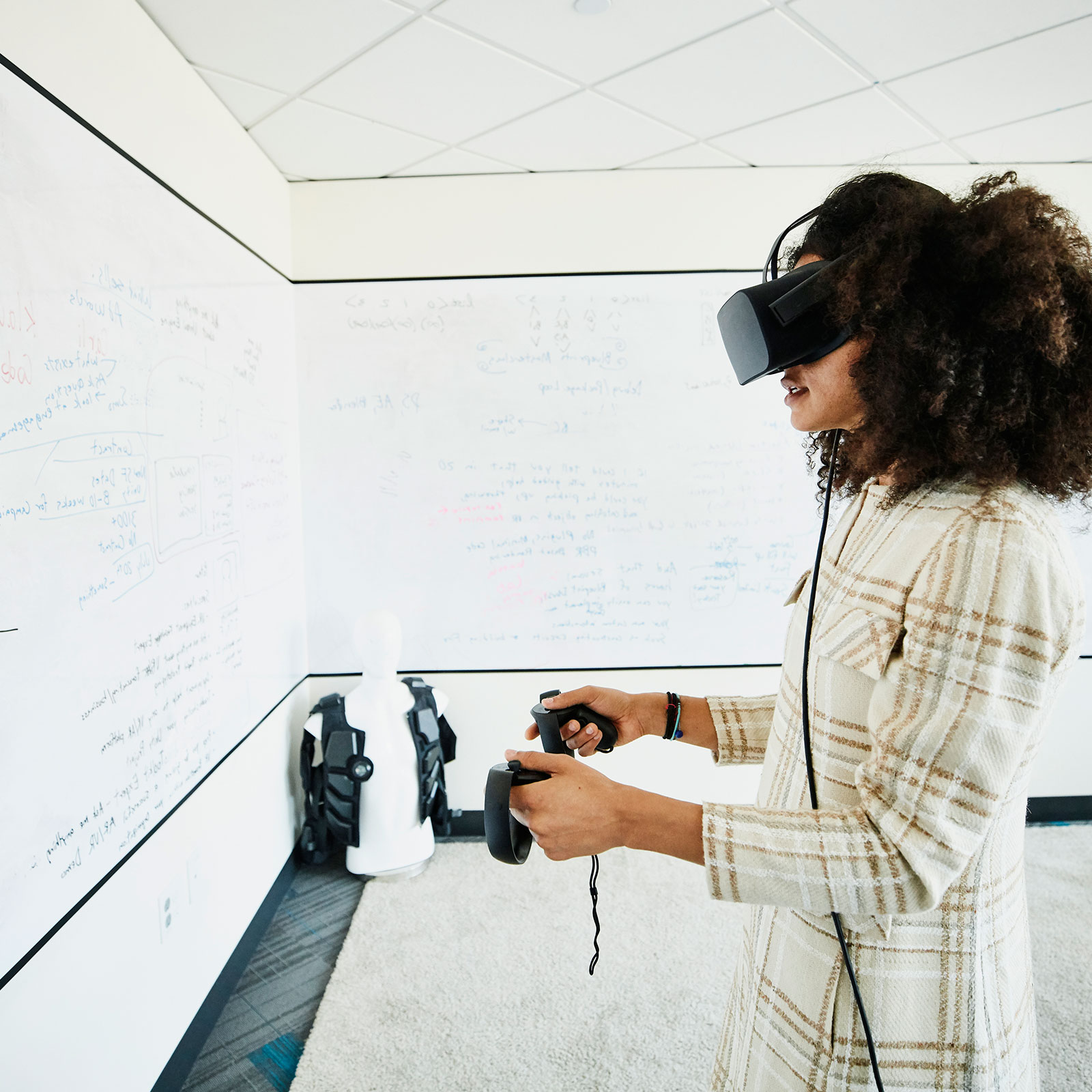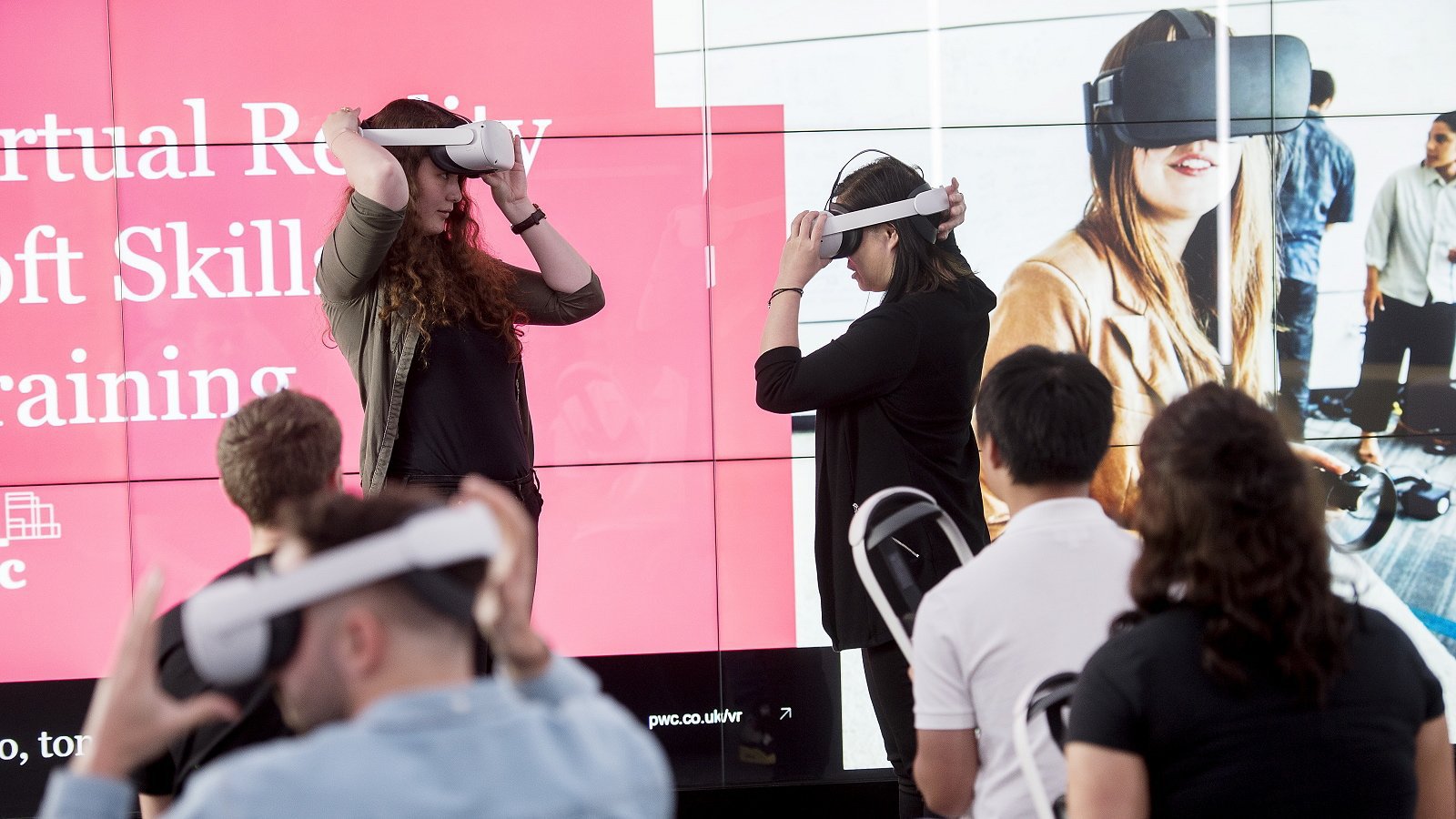As workers start returning to a changing workplace and the war on talent accelerates, training becomes even more critical. Nakheel Properties, a leading property developer in the UAE, was looking to innovate their leadership training programme. They worked closely with PwC to create a corporate training curriculum that was more engaging and delivered better results.

Our role
PwC Academy has been exploring immersive training methods for corporate clients in the context of leadership training. As part of a pilot programme, the PwC Middle East EmTech team with PwC Academy incorporated Virtual Reality (VR) into the Nakheel Properties leadership training programme to trial and assess the use of VR for soft skills training.
The leadership training programme was delivered through a blended curriculum with classroom and VR soft skills training. 21 participants from Nakheel took part in a two-day training session which included performance and behavioural feedback training modules in VR.
Impact
To assess how VR measures up as a training tool for leadership and other soft skills, the PwC Middle East EmTech team tested all participants before the VR training session and after. On average, participants scored 44% higher on their assessment after completing the VR module.
What our learners told us about VR training:
All participants preferred to incorporate VR as part of their learning curriculum
They enjoyed the rich virtual content, felt the interaction was more enjoyable than traditional methods of training and were completely immersed in the virtual environment
Participants felt that VR reduced distraction because they were unable to multitask and were focused on the task at hand
The VR advantage
According to PwC’s VR Soft Skills Training Efficacy Study (2020):
1. Employees in VR courses can be trained up to 4x faster
When you account for extra time needed for first-time learners to review, be fitted for and be taught to use the VR headset, VR learners still complete training three times faster than classroom learners.
2. VR learners are more confident in applying what they’re taught
Because it provides the ability to practice in an immersive, low-stress environment, VR training results in higher confidence levels and an improved ability to actually apply the learning on the job.


3. Employees are more emotionally connected to VR content
Simulation-based learning in VR gives individuals the opportunity to feel as if they’ve had a meaningful experience.
4. VR learners are more focused
In a VR headset, simulations and immersive experiences command the individual’s vision and attention. There are no interruptions and no options to multitask.
5. VR learning can be more cost-effective at scale
The value VR provides is unmistakable when used appropriately. The more people you train, the higher your return will likely be in terms of employee time saved during training, as well as course facilitation and other out-of-pocket cost savings.
As employees return to the workplace, delivering an immersive training experience that can offer a sustained outcome and faster results is more important than ever. VR training is a human-led and a tech powered approach to delivering soft skills training and will be an important part of a blended learning curriculum.

EmTech overview
Contact us










